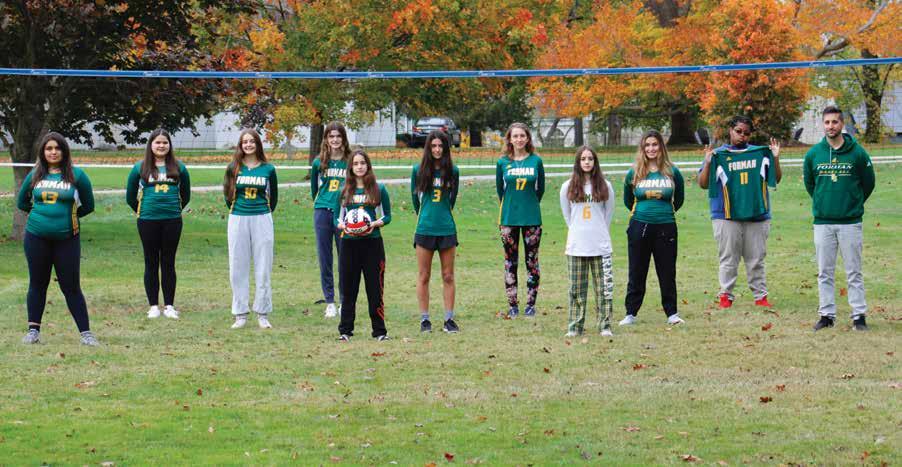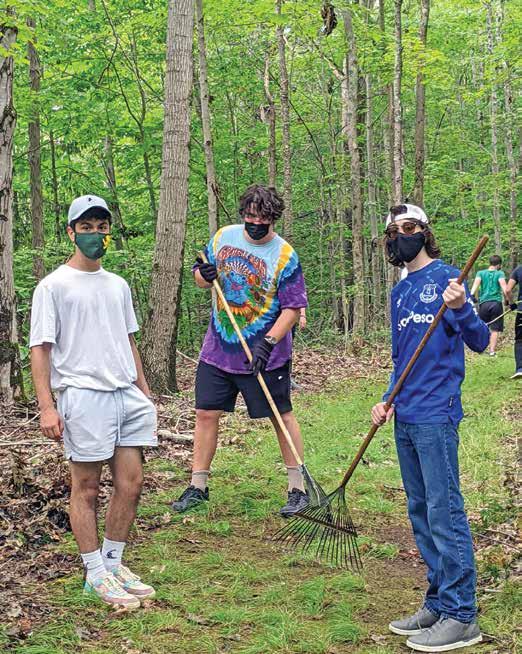
2 minute read
Giving
Taking the Right Direction
Nick Fuglestad ’89
“My education was a very difficult, painful process,” says Nick Fuglestad ’89. “I might have dropped out of high school if I had not found Forman.”
Growing up in Norwalk, CT, was nice for Nick Fuglestad. Except when he was in school.
Fuglestad struggled mightily with dyslexia, a condition his two sisters, who did well in school, did not have. In elementary school, Fuglestad’s learning difference led to frustration, which led to anger. He so dreaded the moment a teacher might call on him to come to the board that, when the moment came, he would hit the kid next to him, preferring to be thrown out of class than to have his inability to read be on display. “I knew how that went from personal experience,” says Fuglestad. “Kids can be brutal.”
“I had come to expect Ds and Fs. I just couldn’t do it. I was in elementary school in the 1970s. There wasn’t a lot of understanding. Teachers called me dumb.”
Before learning the proper skills to overcome the dyslexia and unlock his potential, Fuglestad recalls trying his very best. To get through a paragraph, he would intensely focus on each word. But at the end of the reading, he would have little-to-no comprehension, likely because he had poured so much energy into each word on its own. So little to show for such high effort was deflating, and stirred up all of the wrong emotions.
“Before Forman, my educational experiences were pretty rough,” says Fuglestad. “Forman was my fifth school in five consecutive years. I was having major problems due to dyslexia and acting out.”
His parents’ patience, understandably, was running out. It got to the point of boarding school or military school.
“So I went to Forman. It was the best thing that ever happened to me,” says Fuglestad. “I was going down a terrible path. The School totally turned me around.”
Entering Forman as a sophomore, Fuglestad had some adjusting to do. He was still acting out a bit and had yet to learn positive coping methods. He got some demerits and had a review board. “You don’t change immediately,” says Fuglestad. “You still do things to get attention and play the oddball. But it didn’t faze anyone at Forman. Things didn’t work that way.”
The turnaround began in the classroom. Fuglestad had a one-on-one reading class. He began to see some success, which instilled some academic self-confidence, a brand new feeling. He made friends, and like so many Forman students, he saw that he was not alone with his
Nick oversees a tabletop shoot.










